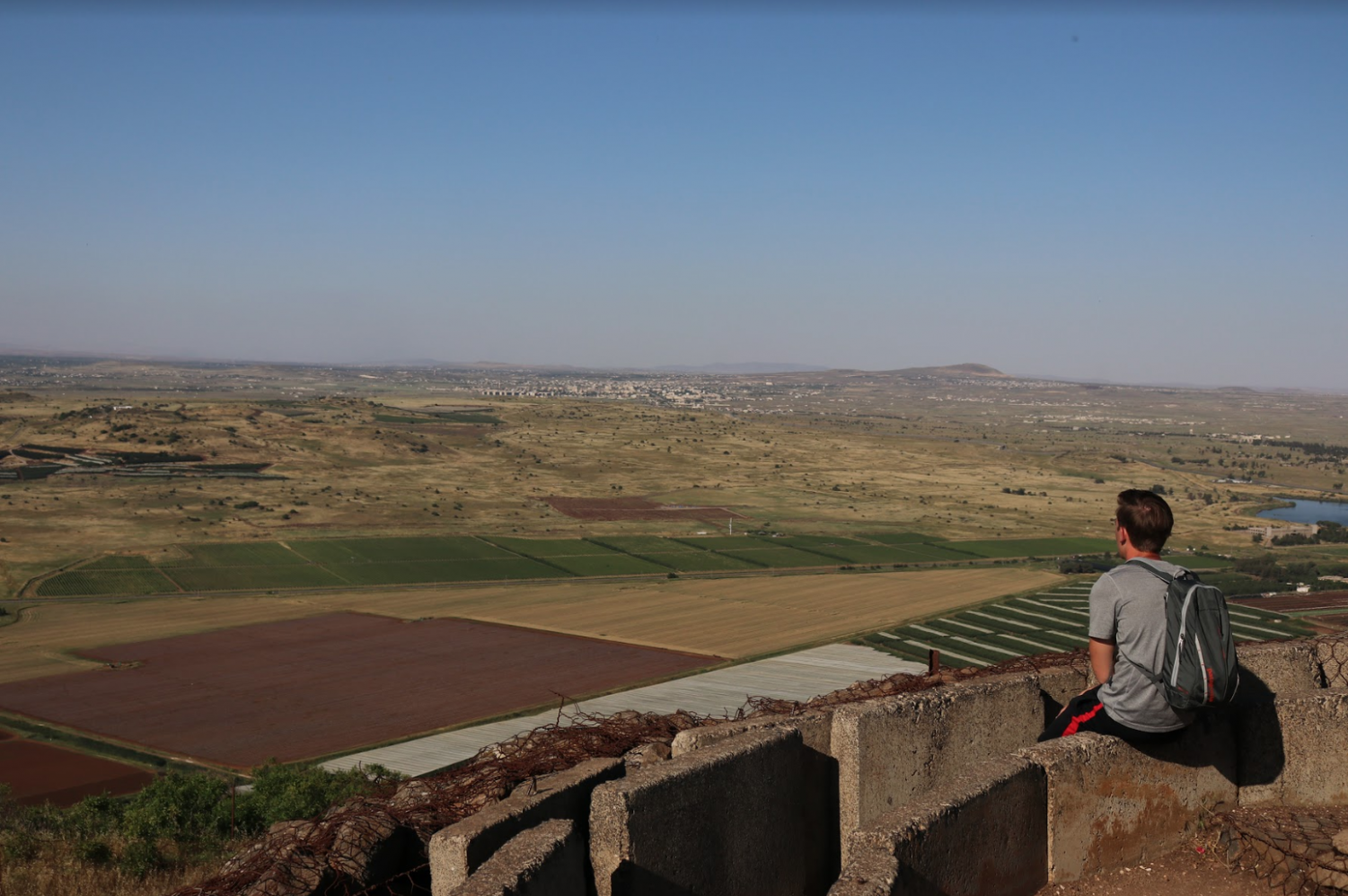A few weeks ago, President Donald Trump recognized Israeli sovereignty over the Golan Heights. This resulted in a global backlash, led by France and Germany, but quickly supported by Russia, Iran, Turkey and Syria.
Professor of history and Middle Eastern studies Judith Mendelsohn-Rood, urges us to move beyond immediate reactions or the tendency to view Middle Eastern policy through theological and apocalyptical lenses. Instead, we should see Trump’s actions as a politically strategic response, given the broader historical and geopolitical perspectives.
WHEN DID THE CONFLICT FOR GOLAN HEIGHTS BEGIN?
According to Mendelsohn-Rood, the Golan Heights, like many of the Middle Eastern conflicts, does not have a clear, “In the beginning…” Does the conflict begin during the Jewish settlements of the first and second Temple periods—B.C. 1200 to A.D. 70—as territory allotted to the tribe of Manasseh was taken by the king of Damascus? Does the conflict begin just before World War I, where settlements purchased in the Golan region were stripped from Jewish inhabitants? Or perhaps, the conflict for the Golan Heights begins after Israel’s independence during the 1948 Arab-Israeli War, and becomes the focus of modern dispute after the 1967 Six Day War?
But the dispute between Israel and Syria may not be a dispute concerning “Who owned what first,” but a geopolitical dispute intimately tied with national survival. After Israel’s declaration of independence, the Golan Heights became the focus of political and geographical concerns. First, its political status was threatened by Israeli occupation because of Syria’s French mandate, clearly giving Golan Heights control to Syria. But second, during the 1967 Six-Day War, the Golan Heights plateau served as a strategic platform from which to launch missiles down into Israel.
And it is within the context of the 1967 Six-Day War that the Golan Heights strategic position becomes firmly fixed in the modern minds of the military alliances. For Israel, Golan Heights is a necessary defense against invasion or from missile assaults. For Syria, Golan Heights is the gateway into Israel’s heart.
HISTORY OF SYRIAN AND ISRAELI ALLIANCE
But knowledge of Golan Heights’ strategic position fails to answer the question, “Why would Trump would recognize Israeli sovereignty over the Golan Heights?” This requires understanding of the military alliances surrounding Golan Heights—the Israeli alliances and the Syrian alliances.
The year 2011 marked the beginning of the Syrian civil war between the Assad’s Syrian government—a minority Alawite sect, aligned with Shiite fighters from Iran, Hezbollah in Lebanon and Russia—against the Syrian people and Sunni rebel groups—backed by an American-led coalition, Turkey, and Gulf States. In 2013, the Syrian civil war crossed then-President Barack Obama’s “red line” with the Ghouta chemical attack, in which the sarin chemical agent killed almost 1500 civilians, including almost 500 children.
Instead of retaliatory action, Obama outsourced U.S. intervention in Syria to Moscow. This fateful decision allowed Putin to pursue his goals for Russia—to reinvigorate Russian influence in the Middle East and to extend Russia’s global influence. As a result, Russia was allowed to oversee removing Syria’s chemical weapon stockpiles, and later made an agreement with Syria to build their only mediterranean naval base in Tartus—fulfilling Catherine the Great’s ambition of a warm water naval base for Russia.
WHY RECOGNIZE ISRAEL SOVEREIGNTY OVER GOLAN?
Currently, Syria is a failed state—but supported by powerful allies. But Syria’s allies have not lacked in their political gains. Russia has regained political influence in the Middle East and established its first and only Mediterranean Naval base. However, according to Mendelsohn-Rood, the bad actor is Iran. Of course, through Syrian aid, Iran has continued to gain political clout in the Middle East, this clout serving to further destabilize the competing influences. For example, Shiite Iran is competing not only to create militias to attack Israel, but also competing against Sunni powers led by Saudi Arabia.
When we consider Trump’s recognition of Israeli sovereignty over Golan Heights, we are not merely looking at a difficult region, located on the northern Israel and southern Syria border, but we are witnessing political maneuvering over a strategic region amid mounting pressures from Russia and Iranian-backed Syria. As Mendelsohn-Rood explains, this may be the strategic move by the Trump administration to give Israel a bit of negotiating room for a politically tumultuous and militarily strategic region.








